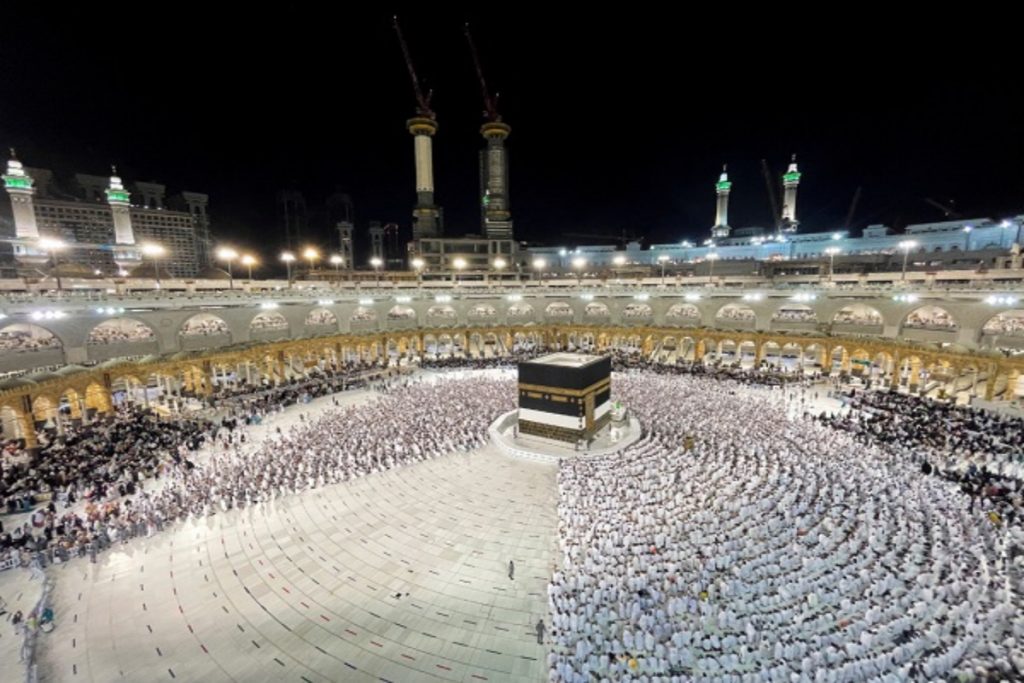Saudi Arabia said on Sunday that as many as 1,301 people died during the Hajj pilgrimage, with “numerous cases” due to heat stress and “unauthorized” trips accounting for over four out of five of the deaths, CNN reported.
In a statement, the Saudi government said, “The health system addressed numerous cases of heat stress this year, with some individuals still under care. Regrettably, the number of mortalities reached 1,301.”
The statement noted that 83 per cent of those who died were “unauthorised to perform Hajj” and “walked long distances under direct sunlight, without adequate shelter or comfort.” It said that the deceased people included “several elderly and chronically ill individuals,” adding that the families of all the dead had now been identified, according to CNN report.
Extreme heat has been named as the main reason behind hundreds of deaths and injuries reported during this year’s Hajj pilgrimage. The temperature in Mecca rose to a record-setting 125 degrees Fahrenheit on Monday. Various authorities have stated that the problems have been enhanced by the number of unofficial pilgrimages.
Saudi Arabia requires each pilgrim to acquire one of the 1.8 million available licences to legally access Mecca, the holy city that is central for Hajj pilgrims.
These licenses can cost a pilgrim several thousand US dollars. Usually, the unlicensed pilgrims don’t travel in organised tour buses with air conditioning or easy access to water and food supplies.
The Saudi government seemed to suggest the unauthorised nature of many of the trips as the reason for taking so long to issue an official death toll, as this had complicated the process of identification.
The statement reads, “Identification completed, despite the initial lack of personal information or identification documents. Proper processes were followed for identification, burial, and honoring the deceased, with death certificates provided.”
Some pilgrims have criticised the poor infrastructure and organisation of this year’s Hajj pilgrimage. Pilgrims who were on official tours also spent the bulk of their day walking outdoors in the scorching heat. Speaking to CNN, some witnesses said they saw worshippers losing consciousness and walking past bodies covered in white cloth.
Saudi Arabia’s announcement comes as the Egyptian government pledged to revoke the licenses of 16 Hajj tourism firms involved in making illegal pilgrimages to Mecca and refer the company’s managers to the public prosecutor amid fears hundreds of Egyptians are among the deceased people.
The Egyptian government made the decision in a cabinet meeting on Saturday after a report highlighted the dubious nature of how some tourism firms operate.
The report reviewed by the cabinet said some operators had not issued correct visas, so holders could not enter Mecca and were rather forced to enter “through desert paths on foot.” It also accused some firms of not being able to provide proper accommodation for staying, leaving people exposed to the heat, CNN reported.
During the meeting, Egyptian Prime Minister Mostafa Madbouly offered his “sincere condolences and sympathy” to the families of the deceased pilgrims and pledged to provide them with the necessary support.
Notably, Hajj permits are given to nations based on a quota system and Saudi Arabia requires each pilgrim to acquire one of the 1.8 million available licences to legally access Mecca.
Since the cost of one of these licences costs several thousand US dollars, many pilgrims attempt to access the site illegally and they usually don’t travel in organised tour buses with air conditioning or easy access to water and food supplies, CNN report.
Notably, the timing of the Hajj pilgrimage is based on the Islamic lunar calendar which in 2024 has fallen during scorching temperatures in Saudi Arabia. Pilgrims made the journey in extreme temperatures of up to 49 degrees Celsius.
During the Hajj pilgrimage, the faithful perform various rituals in and around Mecca, which often involve many hours of walking in the scorching heat every day.
The total number of deaths in this year’s Hajj could still rise, as governments only know about pilgrims who have registered and visited Mecca as part of their nation’s quota.
